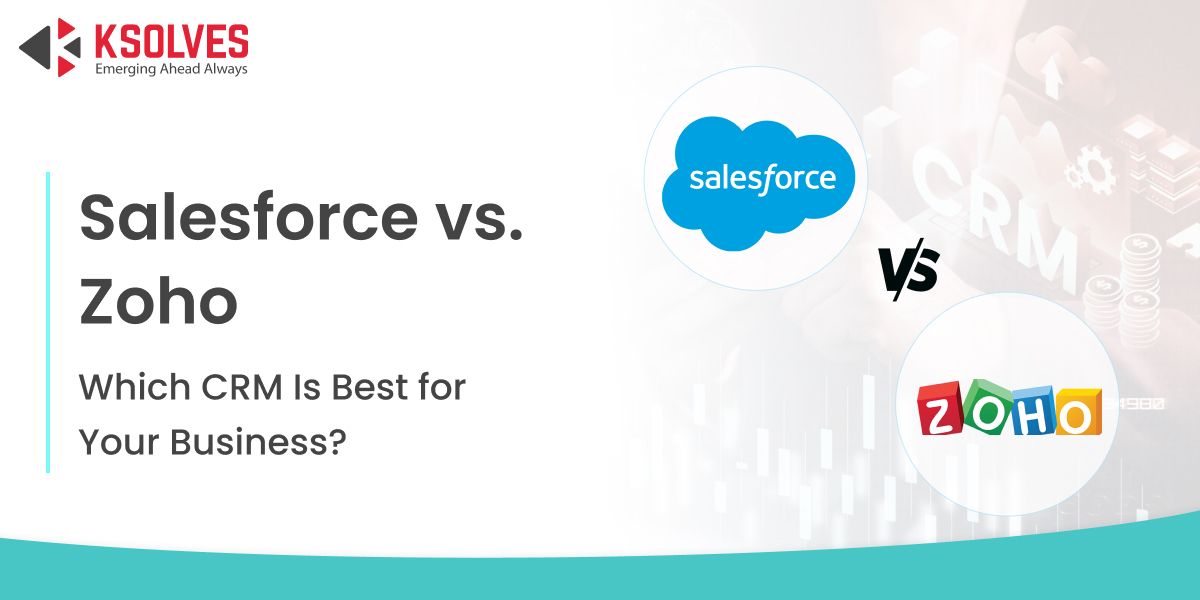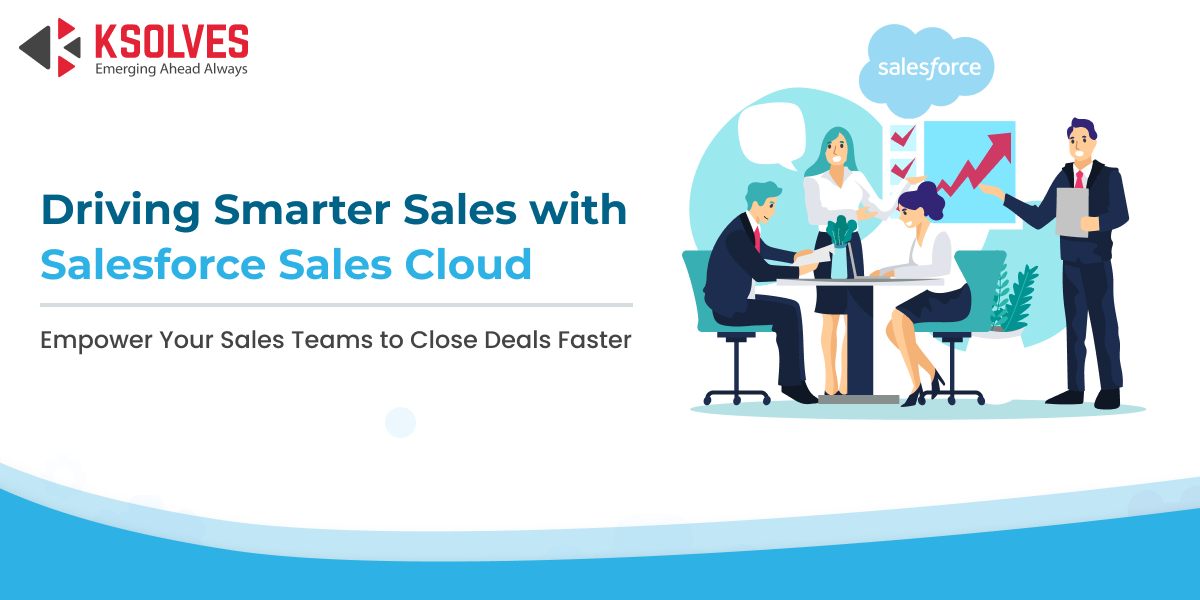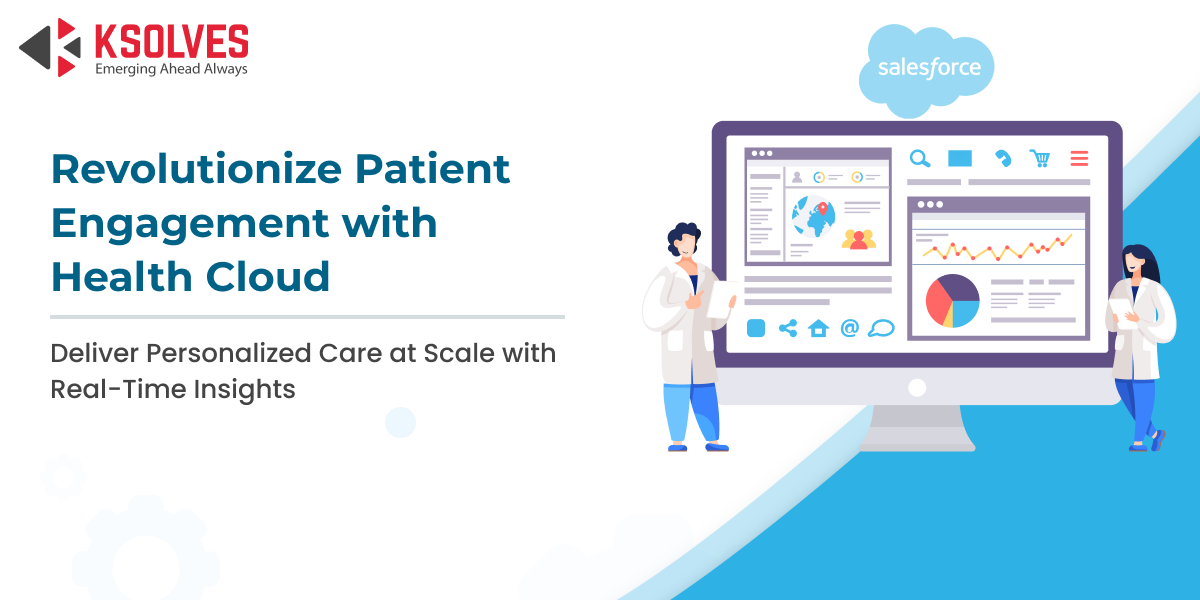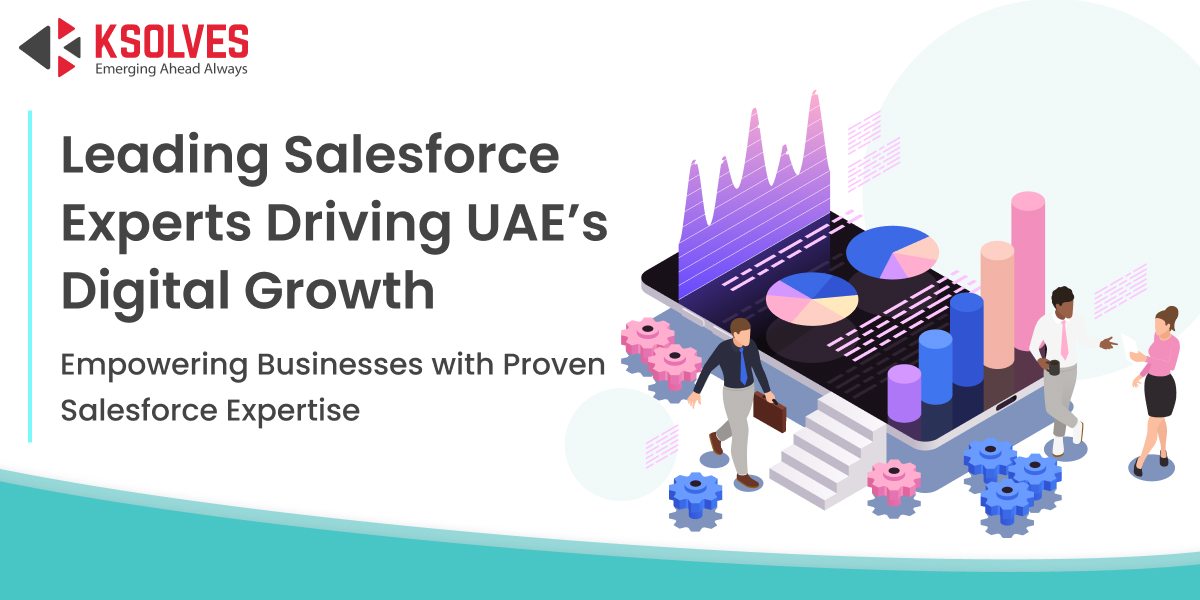Salesforce vs. Zoho: Choose the Right CRM to Level Up Your Business
Salesforce
5 MIN READ
October 21, 2024
![]()

Choosing the right CRM software can make or break your sales strategy. As a sales professional, your CRM is more than just a tool—we can say it’s the backbone of the entire sales process. Although there are several CRMs available in the market, selecting the right one can be a daunting task. However, Zoho and Salesforce CRM are two famous customer relationship management (CRM) software platforms known for their outstanding lead management features in the market. Zoho CRM has received widespread acclaim for its incredible value, low-cost automation capabilities, and simple feature operations. On the other hand, Salesforce wins the race when it comes to providing outstanding customer support, advanced analytics tools, and mobile applications.
- Salesforce CRM: It is an ideal choice for those companies that have larger sales teams and need advanced reporting and analytics features.
- Zoho CRM: Small businesses are mainly looking for cost-effective yet powerful options that work well in managing sales opportunities. Zoho is an apt choice for it.
In this blog post, we’ll explore the strengths and weaknesses of each platform that can help you make an informed decision that empowers your team to excel and drive results.
Salesforce Vs. Zoho
| Comparison Factors | Salesforce | Zoho |
| Sales and marketing |
|
|
| Artificial intelligence capabilities |
|
|
| Ease of use |
|
|
| Customization | Highly Customizable. Enable to customize each aspect of CRM, including the UI and sales process.
Provide Features:
|
Provide minimal customization. |
| Scalability |
|
|
| Automation | Salesforce is a highly effective automation platform, especially at its premium levels. | Zoho provides good automation triggers for common tasks and workflows, but its sequence designer can be a bit confusing. |
| API & Developer Tools | Advanced development tools (Apex, Visualforce, LWC) | Basic API and customization options |
| Reporting & Analytics | Advanced reporting, Tableau CRM for deep analytics | Basic reporting with limited advanced features |
| Customer Support | 24/7 enterprise-level support, dedicated SLAs | 24/7 support but less comprehensive |
| Global Reach | Globally recognized and extensively supported for multinational operations. | Growing but more regional focus |
| Free Trial | 30 days | 15 days |
Features Comparison: Salesforce vs. Zoho
Customization and Scalability
Salesforce: With robust customization options, Salesforce offers many tools to accomplish your specific business needs. It supports custom objects, workflows, and automation, which makes it an ideal option for large enterprises with highly customizable solutions. Also, Salesforce supports both small startups and large enterprises without compromising performance. Salesforce is used in numerous industries like IT management, mortgage sales, healthcare, etc. because of its easy platform integration and outstanding integration capabilities.
Zoho: While Zoho offers customization, it has limited access compared to Salesforce. It is better suited for small to medium-sized businesses that need a less complex solution. Zoho has fewer scalability features, which makes it less ideal for rapidly growing companies.
Integration Capabilities
Salesforce: Salesforce allows you to implement over 3,000 pre-integrated apps to boost your performance in different areas, including document management and sales automation. With Salesforce CRM, you can seamlessly integrate these apps compared to Zoho.
Zoho: Currently, Zoho App Marketplace has around 1,000 integration business apps, marketing tools, document storage, and more. You can get most of the integrations at no cost, like Dropbox, Office 360, G Suite, and more. However, for its app plugins, you need to pay an extra cost, whereas some of the free versions also come with limited functionality.
In this category, Salesforce wins because of its number of app support and seamless integration processes.
| Integration | Salesforce | Zoho CRM |
| Microsoft Outlook | ✅ | ✅ |
| Gmail | ✅ | ✅ |
| Google Calendar | ✅ | ✅ |
| Mailchimp | ✅ | ✅ |
| Facebook Ads | ✅ | ✅ |
| Zoom | ✅ | ✅ |
| Slack | ✅ | ✅ |
| Shopify | ✅ | ✅ |
| Stripe | ✅ | ❌ |
| Asana | ✅ | ❌ |
| Zapier | ✅ | ✅ |
Advanced Reporting Analytics and AI
Salesforce: Salesforce provides wide options for reporting through which you can make any combination of data points in the systems and analyze them for the latest trends or predictions. It plays well in automating routine sales tasks like logging emails, events, and other engagement activities into contact records. By using higher-tier plans, you can get automated lead scoring and AI-driven task prioritization features. It also provides Flow Builder with a drag-and-drop feature to create detailed automation, like triggering an email when a new lead is added. For more complex, multi-user workflows, Flow Orchestration is available as an add-on. Also, the Einstein AI feature offers conversational support for sales reps, assists with tasks, generates email drafts, and serves as a self-service support channel.
Zoho: On the other hand, Zoho has limited scope for certain KPI and funnel measurements, as well as some of them, are not available until you will not take a subscription to the Enterprise plan. It provides basic analytics and reporting features but lacks the advanced AI-driven insights that Salesforce offers. You need to take higher-tier plans (Enterprise and up) to access Zia, Zoho’s AI assistant, which aids in sales forecasting, churn prediction, and competitor analysis.
In short, each of these CRMs utilizes AI in terms of analyzing various aspects, but the Salesforce Einstein tool performs outstandingly as compared to Zoho’s Zia. Salesforce comes with an exclusive range of reporting capabilities and high-performance Einstein AI tools, which ultimately beat the Zoho CRM in this category.
Checkout – Best CRM Tools For Travel Agencies
Mobile Application
Zoho: Both CRMs provide mobile applications but come with different capabilities. The Zoho CRM mobile app provides time management features such as maps, daily planners, etc. to keep you on track. With its mobile analytics functionality, users can view the current status of their sales pipeline and funnel.
Salesforce: On the other hand, Salesforce allows users to edit documents, presentations, and spreadsheets through its mobile app. It lets you view and update all types of deals and records, manage tasks and documents with ease, and help in organizing your customer cases.
Here, the Salesforce Mobile App is a clear winner in this category because it offers advanced functionality features as compared to Zoho.
Sales Automation
Workflow automation plays a key role in any business. It is one of the major benefits of using professional CRM software.
Salesforce: Salesforce has Lightning Flow Automation tools that allow users to create processes to standardize and automate their CRM routines. Even users can develop workflows to recommend every step to their sales team as they move through a deal. It also enables you to design self-service wizards for different tasks, such as contact address updating, so that your team can follow the productive company procedure.
Zoho: Zoho CRM’s sales automation gives priority to communication and follow-up with clients or leads. You can configure it to create new contacts after receiving any email from an unfamiliar email address. For creating workflows for other processes, you need to buy its Enterprise or Ultimate editions.
Salesforce edges over Zoho because it has the great ability to automate different varieties of business and CRM processes that help save your sales team time on repetitive tasks.
Support and Community
CRM software plays a vital role in any company and is considered one of the essential tools of the organization. It becomes important that it will provide you with the best customer support service.
Salesforce: Salesforce CRM is backed by local support in the US as well as in other countries to provide round-the-clock customer service. They also have a huge network of third-party consultants. It offers several resources, like phone, email, and live chat support, along with extensive knowledge. By using the Trailhead learning platform, users can excel in their CRM skills. Also, Salesforce has a huge user community, and they organize events like Dreamforce to provide excellent opportunities for networking and learning. Also, Salesforce offers premium support options, including 24/7 assistance and dedicated success managers for larger enterprises.
Zoho: If we talk about Zoho, it relies on peer-to-peer support and provides support options at an extra monthly price. While Zoho offers a supportive community and customer support, it doesn’t match the excellence and depth of Salesforce’s resources. Users can take advantage of Zoho’s vibrant community and forums, where they can find helpful tips and advice from other CRM users.
In this context, Salesforce edges Zoho mainly for two reasons. First, it provides online resources that are easy to use and has certification programs in CRM and sales-related subjects for users. Apart from this, it provides a 24/7 customer support system.
Who is the winner: Salesforce or Zoho?
In the race of Salesforce vs Zoho, both CRMs provide amazing features that support your business to organize, track and close sales deals. According to your current business need, you should choose the right CRM that comes within your budget and provides fruitful benefits for your organization.
Both CRMs offer unique functionalities and features, but choosing the right choice completely depends on your business priorities and specific needs. If your business is looking for highly customizable, scalable CRM with advanced analytics and industry-specific features, Salesforce is the right choice. While Zoho provides a simpler and more budget-friendly option for smaller businesses.
Do you want to enhance your business growth with Salesforce implementation? Our expert consultants are here to help you. Ksolves is a trusted Salesforce Summit partner supported by a highly qualified team of certified Salesforce professionals who provide customized Salesforce solutions to accomplish your specific business goals. Contact our Salesforce professionals today and get a customized consultation to level up your business.
![]()




AUTHOR
Salesforce
Md. Asad Khan, an expert Technical Project Manager at Ksolves, who is a certified Salesforce architect at Ksolves, brings 7+ years of experience. He specializes in FSL, B2B, Service & Sales Cloud, and Non-profit cloud, excelling in APEX, Aura Component Framework, Lightning Components, Triggers, Visualforce, and creating insightful dashboards and reports.
Share with